¿Qué es la investigación (post)cualitativa?
Resumen
Palabras clave
Texto completo:
PDFReferencias
Barad, K. (2007). Meeting the universe halfway: Quantum physics and the entanglement of matter and meaning. Duke University Press.
Brady, H. and D. Collier. (Eds.). (2004). Rethinking social inquiry: Diverse tools, shared standards. Rowman and Littlefield.
Braidotti, R. (2006). Transpositions. Polity Press.
Braidotti, R. (2012). Afterword: Complexity, materialism, difference. Angelaki 17: 169‒176.
Braidotti, R. (2013). The posthuman. Polity Press.
Byrant, L., N. Srnicek and G. Harman. (2011). Towards a speculative philosophy. n L. Byrant,
N. Srnicek and G. Harman (Eds.) The speculative turn: Continental materialism and realism.
re.press.
Deleuze, G. (1964, 2000). Proust & signs: The complete text. Translated by R. Howard.
University of Minnesota Press.
Deleuze, G. and F. Guattari. (1987). A thousand plateaus: Capitalism and schizophrenia.
Translated by B. Massumi. University of Minnesota Press.
Denzin, N. K. and Y. S. Lincoln. (2008) Introduction: The discipline and practice of qualitative
research. En N. K. Denzin and Y. S. Lincoln (Eds.) The landscape of qualitative research. Sage.
Gage, N. (1989). The paradigm wars and their aftermath: A “historical” sketch of research on
teaching since 1989. Teachers College Record 91(2): 135‒150.
Giddens, A. (1976). New rules of sociological method. Hutchinson and Company.
Gough, N. (2016). Postparadigmatic materialisms: A “new movement of thought” for outdoor
environmental education research? Journal of Outdoor and Environmental Education 19(2):
‒65.
Guattari, F. (2001). The three ecologies. Translated by Ian Pindar and P. Patton. The Athlone Press.
Howe, K. (1992). Getting over the quantitative-qualitative debate. American Journal of Education100(2): 236‒256.
Ingold, T. (2015). Foreword. En P. Vannini (Ed.) Non-representational methodologies: Revisioning research. Routledge.
Johnson, J. (Ed.). (2013). Dark trajectories: Politics of the outside. [Name] Publications.
Lather, P. (2013). Methodology-21: What do we do in the afterward? International Journal of Qualitative Studies in Education 26(6): 634‒645.
Lather, P. and E. St. Pierre. (2013). Introduction: Post-qualitative research. International Journal of Qualitative Studies in Education 26(6): 629‒633.
Le Grange, L. (2000). Is qualitative research a meaningful term for describing the crossfertilisation of ideas which characterises Contemporary educational research? South African
Journal of Education 20(3): 192‒195.
Le Grange, L. (2012). Ubuntu, ukama, environment and moral education. Journal of Moral
Education 41(3): 329‒340.
Le Grange, L. (2016). Sustainability education and (curriculum) improvisation. Southern African
Journal of Environmental Education 32: 26‒36.
Le Grange, L. (2017). Environmental education after sustainability. In Post-sustainability: Remaking education for the future, eds. B. Jickling and S. Sterling. PalgraveMacMillan.
Le Grange, L. (2018a). Spinoza, deep ecology and education informed by a (post)human sensibility. Educational Philosophy and Theory 50(9): 878‒887.
Le Grange, L. (2018b). The notion of Ubuntu and the (post)humanist condition. En J. Petrovic and R. Mitchell (Eds.) Indigenous philosophies of education around the world. Routledge
Meillassoux, Q. (2008). After finitude: An essay on the necessity of contingency. Translated by R. Brassier. Continuum.
Payne, P. G. (2016). What next? Post-critical materialisms in Invironmental education. Journal of Environmental Education 47(2): 169‒178.
Santos, B. (2014). Epistemologies of the south: Justice against Epistemicide. Paradigm Publishers.
Smith, D. W. (2012). Essays on Deleuze. Edinburgh University Press.
St. Pierre, E. A. (2011). Post-qualitative research: The critique and the coming after. En N. K. Denzin y Y. S. Lincoln (Eds.) The Sage handbook of qualitative research. Sage publishers.
St. Pierre, E. A. (2013). The posts continue: Becoming. International Journal of Qualitative Studies in Education 26(6): 646‒657.
Ulmer, J. B. (2017). Posthumanism as research methodology: Inquiry in the Anthropocene. International Journal of Qualitative Research in Education 30(9): 832‒848.
Wu, J., P. W. Eaton, D. W. Robinson-Morris, M. F. G. Wallace and S. Han. (2018). Perturbing possibilities in the postqualitative turn: Lessons from Taoism and Ubuntu. International Journal of Qualitative Studies in Education 31(6): 504‒519

Este obra está bajo una licencia de Creative Commons Reconocimiento-NoComercial-CompartirIgual 4.0 Internacional.
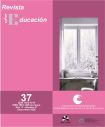 |
ISSN 1853-1318 (impresa) - ISSN 1853-1326 (en línea)
|
| Indizada en: | |
 | CCPP Catálogo Colectivo de Publicaciones Periódicas http://ccpp.caicyt.gov.ar/cgi-bin/koha/opac-detail.pl?biblionumber=149451 |
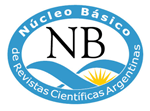 | Núcleo Básico de Revistas Científicas Argentinas, Caicyt http://www.caicyt-conicet.gov.ar/sitio/revista-de-educacion/ |
 | Google académico (en proceso de actualización) |
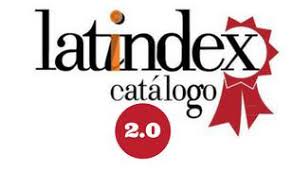 | Latindex https://www.latindex.org/latindex/ficha/14316 |
 | Redib http://redib.org/Record/oai_revista1003-revista-de-educaci%C3%B3n |
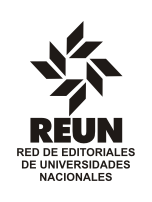 | REUN https://www.reun.com.ar/ |
 | DOAJ Link/ |
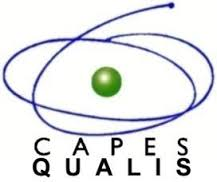 | Capes Qualis Link/ |
 | Journals for Free Link/ |
 | Latinoamericana (Asociación de Revistas Académicas de Humanidades y Ciencias Sociales) Link/ |
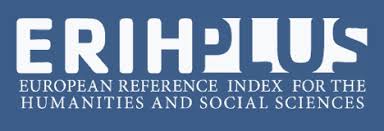 | ERIH PLUS (European Reference Index for the Humanities and Social Sciences) Link/ |
 | ROAD (Directory of Open Acces Scholarly Resources) Link/ |
 | Directory of Research Journals Indexing (DRJI) Link/ |
 | LatinRev Link/ |
| Esta revista utiliza el Identificador Persistente | |
.png) |

